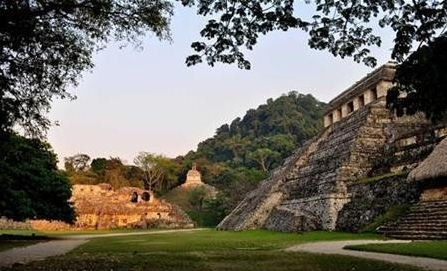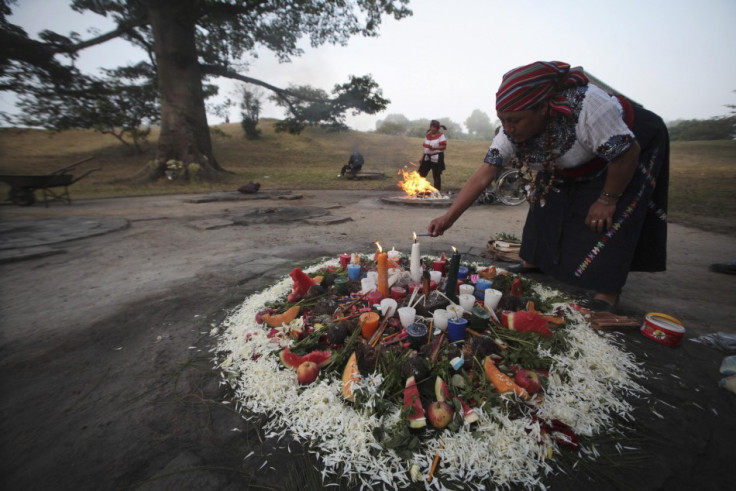Mayan Doomsday Calendar 2012: Experts Debunk End of the World Talk
That the calendar of the ancient Mayans predicts a global apocalypse on 21 December, 2012, is old news. The question for pessimists, mystics, conspiracists and fantasists is will the Mayans be proven correct?

The truth behind Mayan Doomsday
The Mayan Doomsday prediction derives from calculations based on calendar cycles. However, the link to the Mayan calendar itself is tenuous because the original prophecy involved a planet called Nibiru (discovered by the Sumerian civilization), which was believed to be on a collision course with Earth.
Scientists insist that predictions of a planetary collision are wrong because the the ancient civilization did not have the technology available in the 21st century to back up their claims.
"If Nibiru or Planet X were real and headed for an encounter with the Earth in 2012, astronomers would have been tracking it for at least the past decade, and it would be visible by now to the naked eye. Obviously, it does not exist," Nasa said.
Nasa scientists also explained the concept of the "long-count period", which has caused some confusion.
"Just as the calendar you have on your kitchen wall does not cease to exist after December 31, the Mayan calendar does not cease to exist on December 21, 2012. This date is the end of the Mayan long-count period but then - just as your calendar begins again on January 1 - another long-count period begins for the Mayan calendar," the space agency explained.
Basically, the mythical Doomsday dateline is the Gregorian equivalent of the Mayans needing a new calendar ... it has nothing to do with catastrophic planetary alignments or anything alarming.

Experts debunk Doomsday prophecies
"I often get asked what's going to happen on the day. I say lots of things are going to happen. Some people will be born. Some people will die. A car headlight will burn out. There will be earthquakes, like there are every day. And none of this will have anything to do with the ancient Mayan calendar," John Carlson, the director of the Centre for Archaeoastronomy at the University of Maryland explained to the Guardian
"There are no ancient Maya prophecies for anything to happen on this date. There. Are. None," he stressed.
From a social and cultural perspective, the fact is that humanity is enamoured of the idea of Doomsday: a cultural concept that resonates across all cultures and civilizations. Geoffrey Braswell, an associate professor of anthropology and a Maya scholar based at the University of California in San Diego feels the focus ought perhaps to be on that fondness for end-of-the-world predictions.
"This tells us more about ourselves, particularly in the Western world, than it does about the ancient Maya," Braswell said. "The idea that the world will end soon is a very strong belief in Western cultures. The Maya ... we don't really know if they believed the world would ever end."
There is an interesting point here though. A Mayan belief in Doomsday, although unsubstantiated in terms of actual historical evidence, can reasonably be assumed based on the fact a number of global civilizations, past and present, have similar beliefs. The Hindus, for example, believe in Kali Yuga.
So why is it that humanity is so fond of the idea of Doomsday?
"In part it's a reflection that we're all obsessed with our own mortality but there's a wider context. In a strange way, it's comforting to think that when we go the whole thing goes, that we're at a special point in history," suggests Chris French, a professor of psychology at Goldsmiths College in London.
Finally, the Mayans themselves might be able to settle this matter once and for all. An earlier IBTimes UK article reported on the discovery of a small chamber, with mural-painted walls, and a Mayan calendar. The calendar that was discovered, according to archaeologists, was the oldest known man-made artefact ever found ... and it debunked the Doomsday myth.
© Copyright IBTimes 2025. All rights reserved.






















